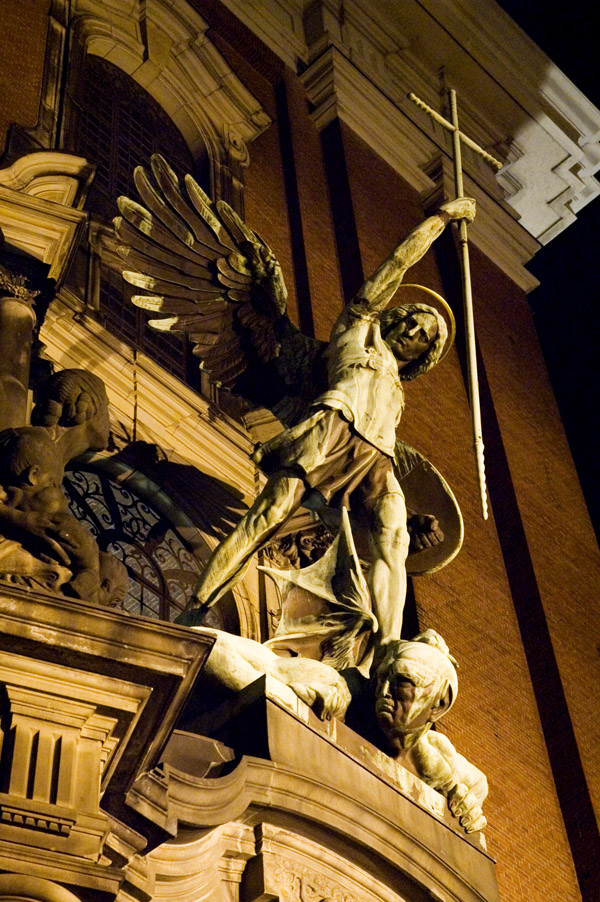Today is the Feast of Saint Michael (which, under the new ways, includes Gabriel and Raphael). Of the three Archangels mentioned in Scripture, Michael is the most prominent. Hie identified himself to Joshua as the general of the army of the Lord and Michael is considered to be the protector of the Church. This is affirmed in the story of the miracle of Chonae, when pagans attempted to destroy a church by diverting the river Lycas, only to have Michael intercede and split the rocks in twain, carving out a new channel and saving the sanctuary.
During the Middle Ages, the feast of Saint Michael, aka Michaelmas, was the annual day of reckoning, of settling accounts between merchants. On this day, a celebration would be had, thanking God for his benefice in the past year and asking Him for continued benefice in the year to come. This ties into the story which I wish to mention and relates directly to the lesson.
Jude references an ancient judaic story, wherein Michael comes to blows with the Devil over the body of Moses, for the Great Deceiver wishes to give the people of Israel a hero to worship instead of YHWH. Triumphing at the last, Michael has Satan at his mercy whereupon the Devil says 'So, then, you shall judge me and throw me into the pit?' And Michael replies that it is only God who may judge.
Only God may judge. If the greatest of the angels, the general of the army of God cannot judge the very incarnation of evil, how can we dare look at another and say that they are found wanting?

No comments:
Post a Comment